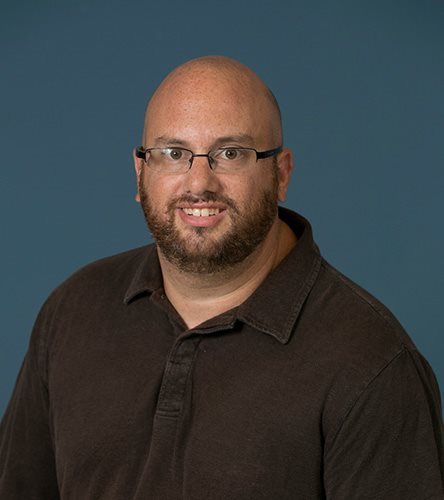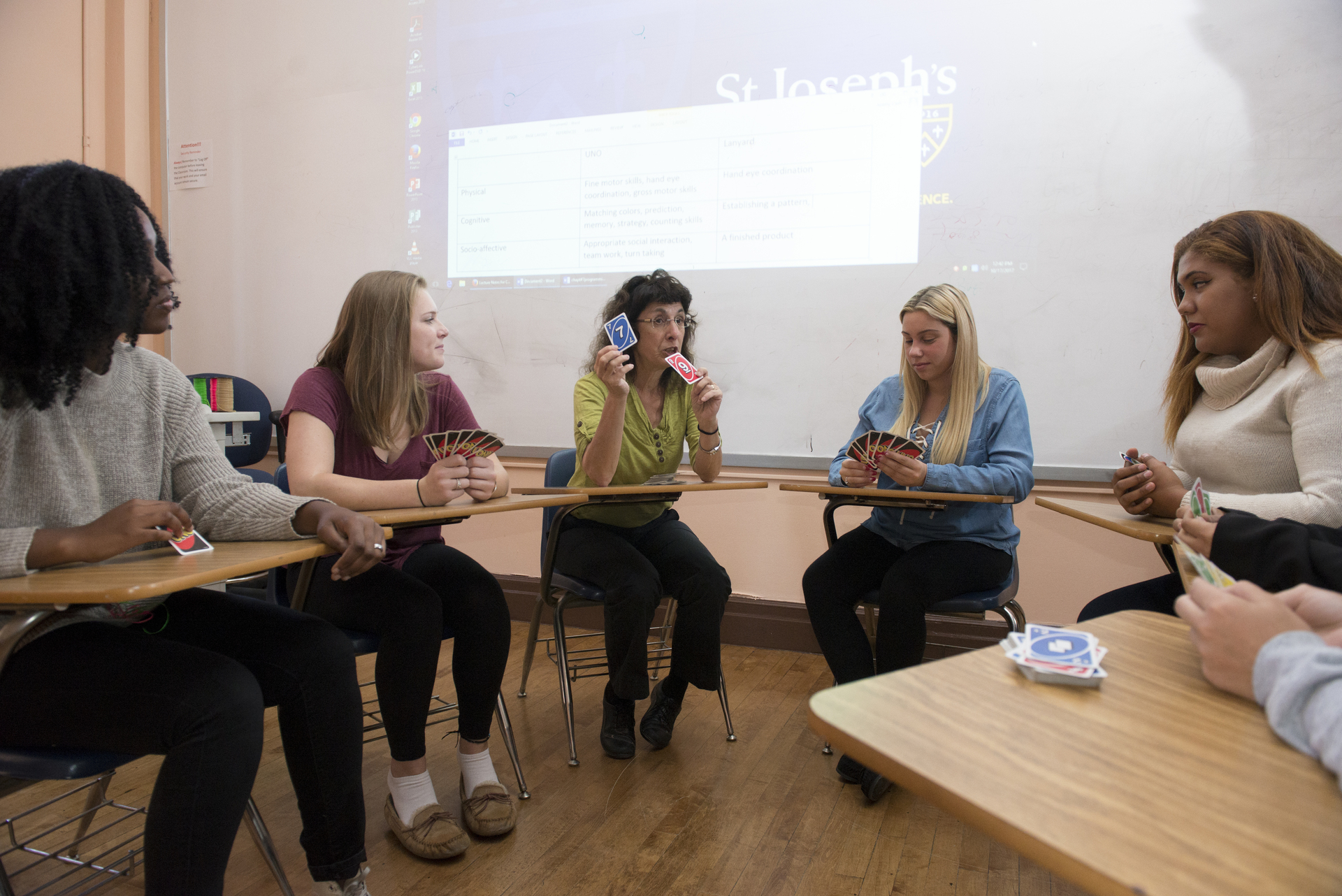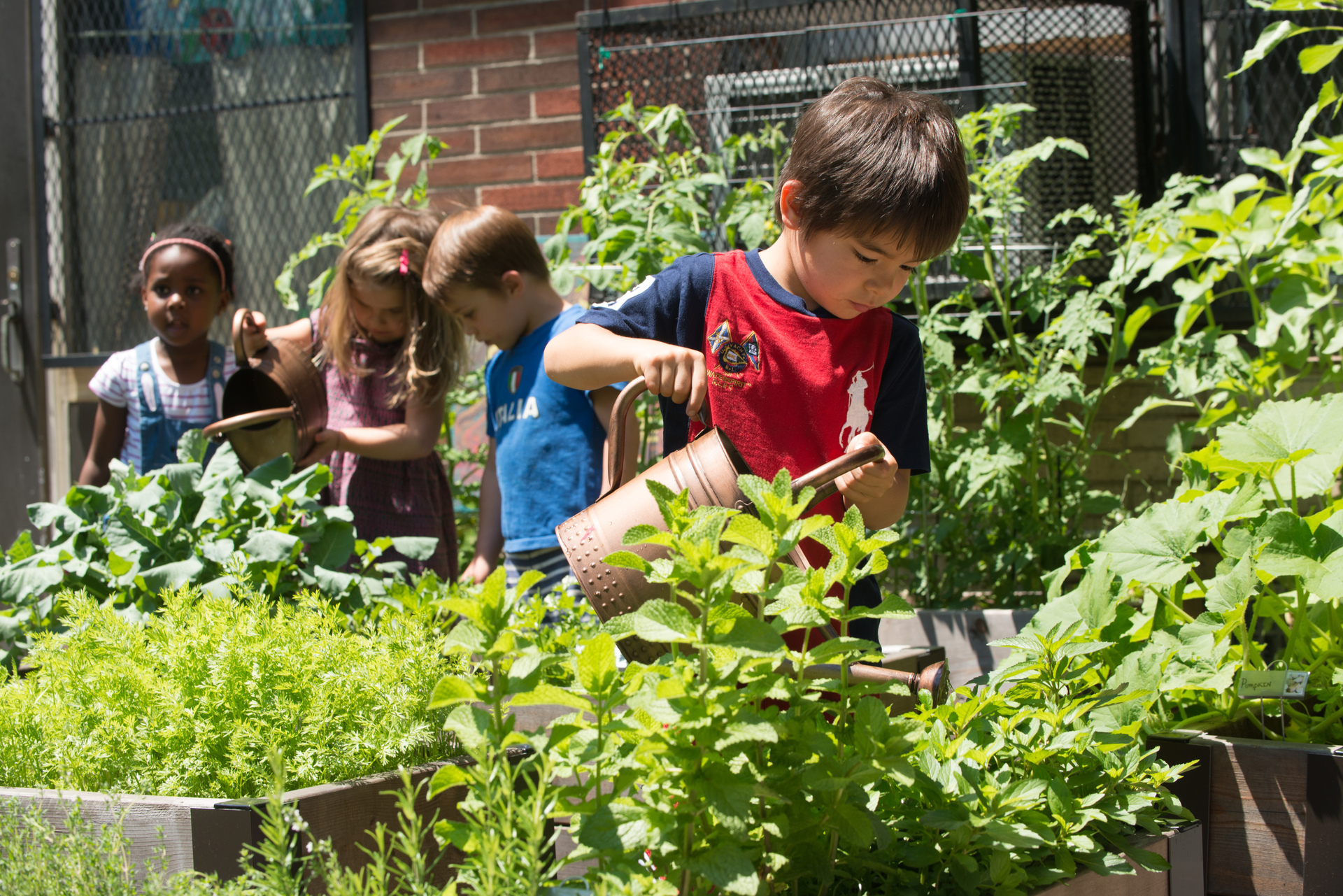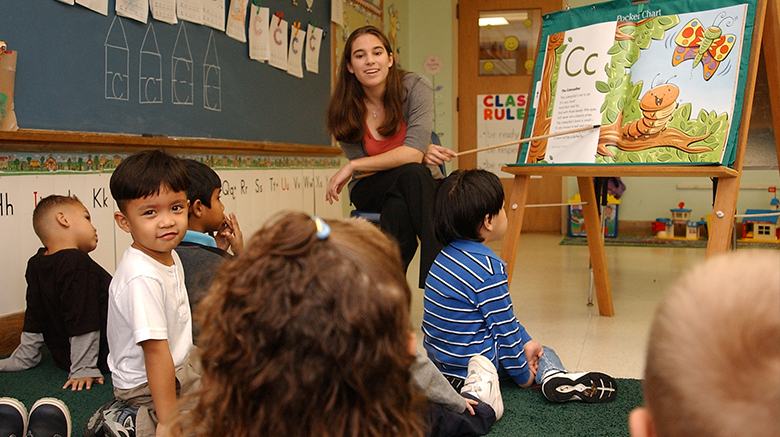Eric Shyman, Ed.D., associate professor of education at SJC Long Island, is spending the summer working on his fifth book, tentatively titled “Finding the Teacher Self.”
 “The main premise (of the book) is that, by thinking more deeply about one’s teaching, one can and will effect a change in one’s actual teaching practice,” Dr. Shyman said. “It deepens teachers’ abilities to be professionally reflective and more culturally aware regarding their students. The purpose is to be able to create a classroom community in which students’ differences are celebrated and valued, rather than minimized.”
“The main premise (of the book) is that, by thinking more deeply about one’s teaching, one can and will effect a change in one’s actual teaching practice,” Dr. Shyman said. “It deepens teachers’ abilities to be professionally reflective and more culturally aware regarding their students. The purpose is to be able to create a classroom community in which students’ differences are celebrated and valued, rather than minimized.”
Dr. Shyman received his Ed.D. in Intellectual Disability and Autism Studies with a specialization in Instructional Leadership from Columbia University in 2009. He taught students in self-contained special education schools and classrooms for 10 years before transitioning to higher education in 2006. He’s been teaching courses on literacy and cognition, special education, and child study at St. Joseph’s College for the past five years, where he recently received tenure.
Inspiring Change
“When I began my career as a special education teacher, I worked with kids with severe autism and noticed how difficult it was to create a system that made them a genuine part of the community,” Dr. Shyman said. “Once I began my doctoral program, I became more familiar with the idea of marginalization and social justice issues, and how people with disabilities often experience the same social and cultural challenges as people who are considered racial and ethnic minorities.”
 Dr. Shyman started working with other educators to help them understand, celebrate and value the differences between their own culture and the cultures of their students.
Dr. Shyman started working with other educators to help them understand, celebrate and value the differences between their own culture and the cultures of their students.
“Reflecting on one’s culture and its context can make it easier to accept and understand conflicting or alternative narratives,” he said. “Once this conflict is ‘disarmed,’ growth and understanding, as well as true value, can be facilitated through conversation.”
Dr. Shyman believes that the value and appreciation of differences in the classroom can help create a more socially just society overall.
“We often hear the narrative that we should ‘focus on our similarities rather than our differences,’ but I disagree,” he said. “I think we as a culture need to learn how to understand and value one another’s differences, and to learn to believe that differences do not have to be divisive.”
A Book and Beyond
The book, which will likely be published in early 2020, is geared toward educators of all sorts, including teachers currently working at the elementary and secondary levels, as well as college students in education programs.
 “I am gearing the book more as a workbook,” Dr. Shyman said. “The text is designed to provide shorter bits of information (such as theories, definitions or concepts) followed by one or two ‘reflective activities’ that allow the teacher to apply the content directly to his or her teaching beliefs, philosophy and practice.”
“I am gearing the book more as a workbook,” Dr. Shyman said. “The text is designed to provide shorter bits of information (such as theories, definitions or concepts) followed by one or two ‘reflective activities’ that allow the teacher to apply the content directly to his or her teaching beliefs, philosophy and practice.”
Dr. Shyman plans on using his latest book in his classes at SJC Long Island, especially his “Reflective Teaching and Learning” course, which partially inspired him to write the book.
“The idea of reflective teaching in particular came out of that class,” he said. “While I’ve always been reflective as a person and a professional, I hadn’t given it that name until I came to SJC. Now I’ve taught the course seven or eight times, and the work for this book grew directly out of my experience with it. The Department of Child Study is always finding ways to instill the notion of reflection into curriculum, and I think this is an extension of the sisters’ influence on SJC culture, as well as the philosophy that grew out of St. Joseph himself.”
Dr. Shyman’s four previous books are in the areas of inclusive education, educating children with autism and educational history.

